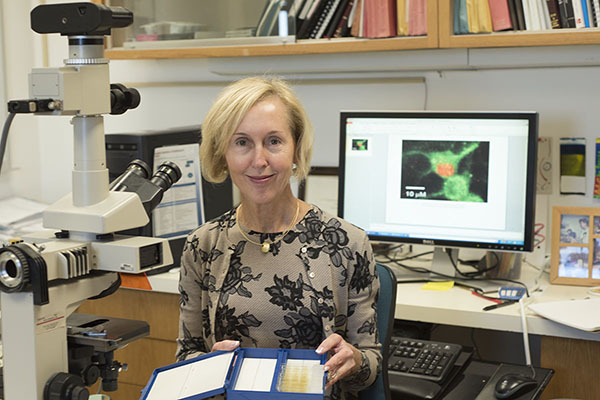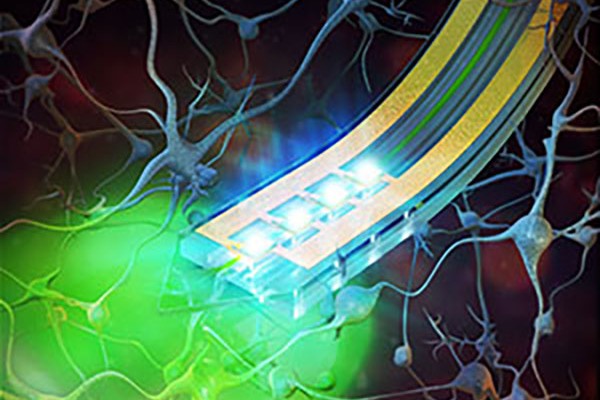Scientists more effectively control pain by targeting nerve cell’s interior
In real estate, location is key. It now seems the same concept holds true when it comes to stopping pain. New research co-led by the School of Medicine indicates the location of receptors that transmit pain signals is important in how big or small a pain signal will be and how effectively drugs can block those signals.
Methadone’s side effects, efficacy may be linked to genetic makeup
Methadone — long used to treat pain and addiction — can be lethal if it lingers too long in the body. New research led by the School of Medicine’s Evan D. Kharasch, MD, PhD, has identified genetic subtypes in people that govern methadone clearance, findings that could help prevent some of the 5,000 methadone-related deaths that occur each year in the United States.
New pharmacy, medical school partnership seeks better, safer medications
St. Louis College of Pharmacy and Washington University School of Medicine in St. Louis are joining forces to find better, safer and more effective ways to use prescription medications to improve health. Researchers from the two institutions are collaborating to create the Center for Clinical Pharmacology. The center’s director will be Evan D. Kharasch, MD, PhD, the Russell D. and Mary B. Shelden Professor of Anesthesiology and professor of biochemistry and molecular biophysics at the School of Medicine.
Device delivers drugs to brain via remote control
A team of researchers, including neuroscientists from Washington University School of Medicine in St. Louis, has developed a wireless device the width of a human hair that can be implanted in the brain and activated by remote control to deliver drugs to brain cells. The technology, demonstrated for the first time in mice, one day may be used to treat pain, depression, epilepsy and other neurological disorders in people by targeting therapies to specific brain circuits.
Light — not pain-killing drugs — used to activate brain’s opioid receptors
Washington University School of Medicine neuroscientists, led by Michael R. Bruchas, PhD, assistant professor of anesthesiology and of neurobiology, have attached the light-sensing protein rhodopsin to opioid receptor parts to activate the receptor pathways using light from a laser fiber-optic device. They also influenced the behavior of mice using light, rather than drugs, to activate the reward response.
Bruchas, Gereau receive DECODE grant
Anesthesiology researchers Robert Gereau, PhD, (left) and Michael Bruchas, PhD, (right) have received one of only 11 DECODE (Deciphering Circuit Basis of Disease) grants to be awarded. The awards were announced at a ceremony featuring Thomas Insel, MD, (center) director of the National Institute of Mental Health (NIMH).
Three receive NIH awards to pursue innovative ideas
Andrew Yoo, Robert Gereau and Michael Bruchas have been awarded grants from the National Institues of Health Common Fund to pursue visionary research that has the potential to transform science and improve human health.
December Anesthesiology features Washington University department
For the first time, Anesthesiology, the premier journal in the field of anesthesiology, focuses entirely on the physicians, scientists and research conducted in a single, U.S. institution. The December issue of the journal features the work of the Department of Anesthesiology at Washington University School of Medicine in St. Louis.
Researchers block morphine’s itchy side effect
Itching is one of the most prevalent side effects of powerful, pain-killing drugs like morphine, oxycodone and other opioids. For many years, scientists have scratched their own heads about why the drugs so often induce itch while they are suppressing pain. Now researchers at Washington University School of Medicine in St. Louis have shown they can control the opioid-induced itching without interfering with a drug’s ability to relieve pain.
Washington University Physical Therapy launches clinic for runners
To help runners reach their potential, the Program in Physical Therapy at Washington University School of Medicine has launched a running clinic to diagnose movement problems and promote the most efficient running mechanics for each runner.
View More Stories



